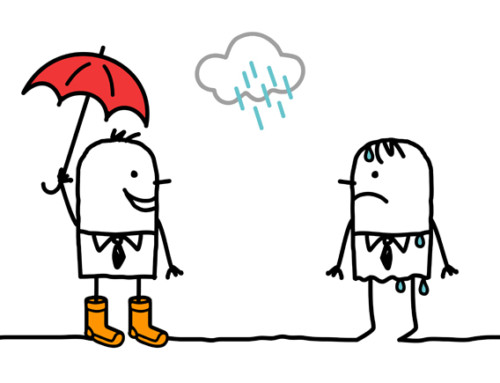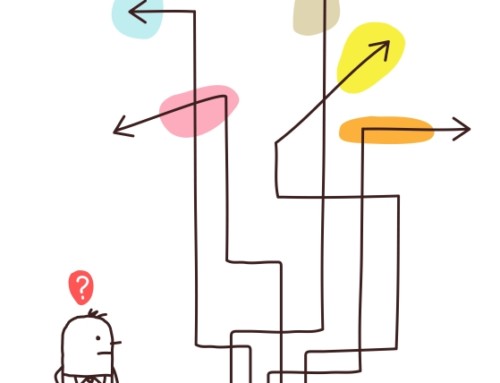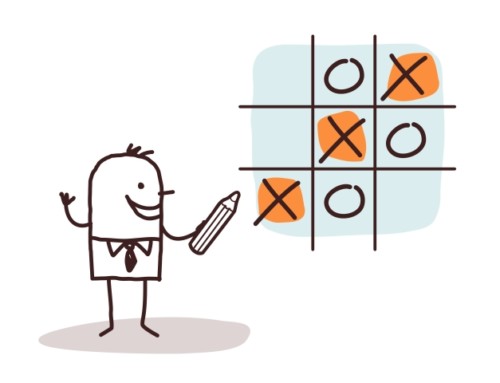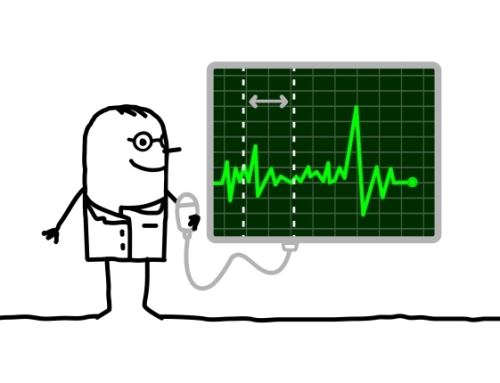In this article, I discuss how you can manage the bad kind of distraction and make use of the good kind of distraction.
Distraction is like Dr. Jekyll and Mr. Hyde. Most people think of distraction as an inherently negative Mr. Hyde. That is, distractions often interfere with being able to focus on important tasks such as those at work or at home as well as performing in sports and other areas. In my work as a Calgary psychologist and a Cochrane psychologist, I help many clients learn to manage this negative kind of distraction so that they can focus on the task at hand. People are less aware of the good Dr. Jekyll kind of distraction. This involves deliberately using distraction to take our focus off negative thoughts. Let’s look at each of these two sides of the double-edged sword known as distraction.
The bad kind of distraction: Interfering with focus on important tasks
Distraction is bad when it interferes with our focus on important tasks such as doing a job at work or at home and giving a performance in sports, music, public speaking and other areas. Two kinds of distractions interfere with our focus—external and internal distractions. External distractions are stimuli in the immediate environment which detract from concentrating on the task at hand. These include auditory and visual distractions. For example, crowd noise may interfere with a football player concentrating on the execution of a play. Similarly, a teacher may find it difficult to focus on a lesson they are giving if they notice a student walking into the class after it has begun.
Internal distractions involve thinking about matters which detract from our concentrating on the task at hand. Common internal distractions include thinking about your problems and worries and daydreaming about something more pleasant than the task at hand.
The good kind of distraction: Shifting the focus from negative thoughts
Sometimes we can be focusing on negative thoughts which cause us distress. Known as ruminating, this behavior can involve concentrating on worries which fuel anxiety, engaging in negative self-talk which leads to intense sadness, guilt or embarrassment, being stuck on thoughts about not making progress on goals which causes frustration, and going over negative thoughts about another person which fuels anger or even rage. Distraction is a helpful strategy people can use to take their focus off these and other negative thoughts on which they ruminate to reduce their distress and improve their mood.
Strategies which make it easier to concentrate when internal and external distractions are present
To deal with internal distractions which interfere with our focus on important tasks and performances, one helpful strategy is ‘park it and deal with it later’. Parking involves putting off thinking about the source of the internal distraction until a later time when you will deal with it directly. Knowing you will be dealing with the issue later makes it easier to park it. Dealing with the source of the internal distraction head-on typically entails addressing a problem or issue such as those at work or in a relationship. For external distractions, practicing being able to concentrate and perform effectively despite these distractions is an effective strategy. For example, professional football teams use practices to become effective at executing their plays while recorded crowd noise is piped in on loudspeakers. This practice makes it more likely that the players will be able to focus and execute when they face the external distraction of real crowd noise during a game.
Strategies which use distraction to shift the focus away from negative thoughts
To use good distractions to your advantage, practice shifting your attention away from the negative thoughts on which you have been ruminating. You can do this by either shifting your focus to thoughts of things you enjoy or by focusing on an external distraction in your immediate environment. In other words, distract yourself from your negative thoughts by deliberately making use of internal and external distractions. This kind of distraction will help to stop you from focusing on thoughts which have a negative effect on your mood by shifting your focus to thoughts which have a positive effect on your mood. Using this strategy can play a pivotal role in addressing issues in depression counselling, anxiety counselling, anger management counselling and many other aspects of counselling.
Please contact a registered psychologist specializing in cognitive behavioural therapy for help in implementing the strategies discussed in this article.
May you know the right time and the right way to distract yourself,
-Dr. Pat






Leave A Comment